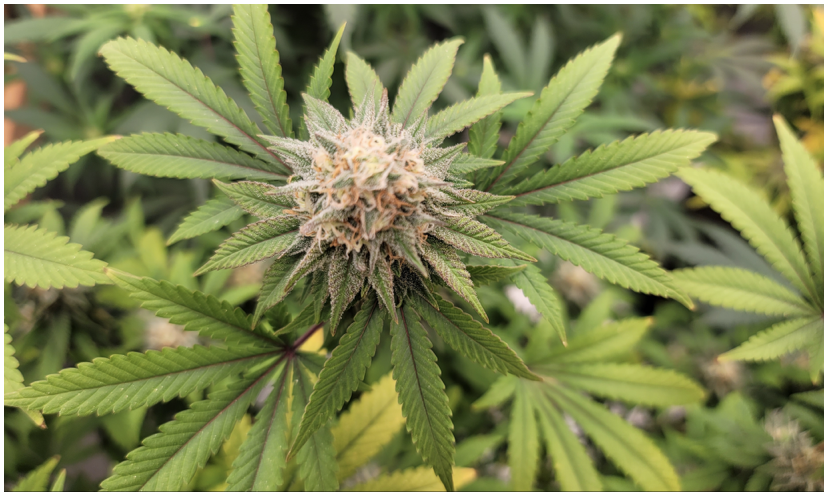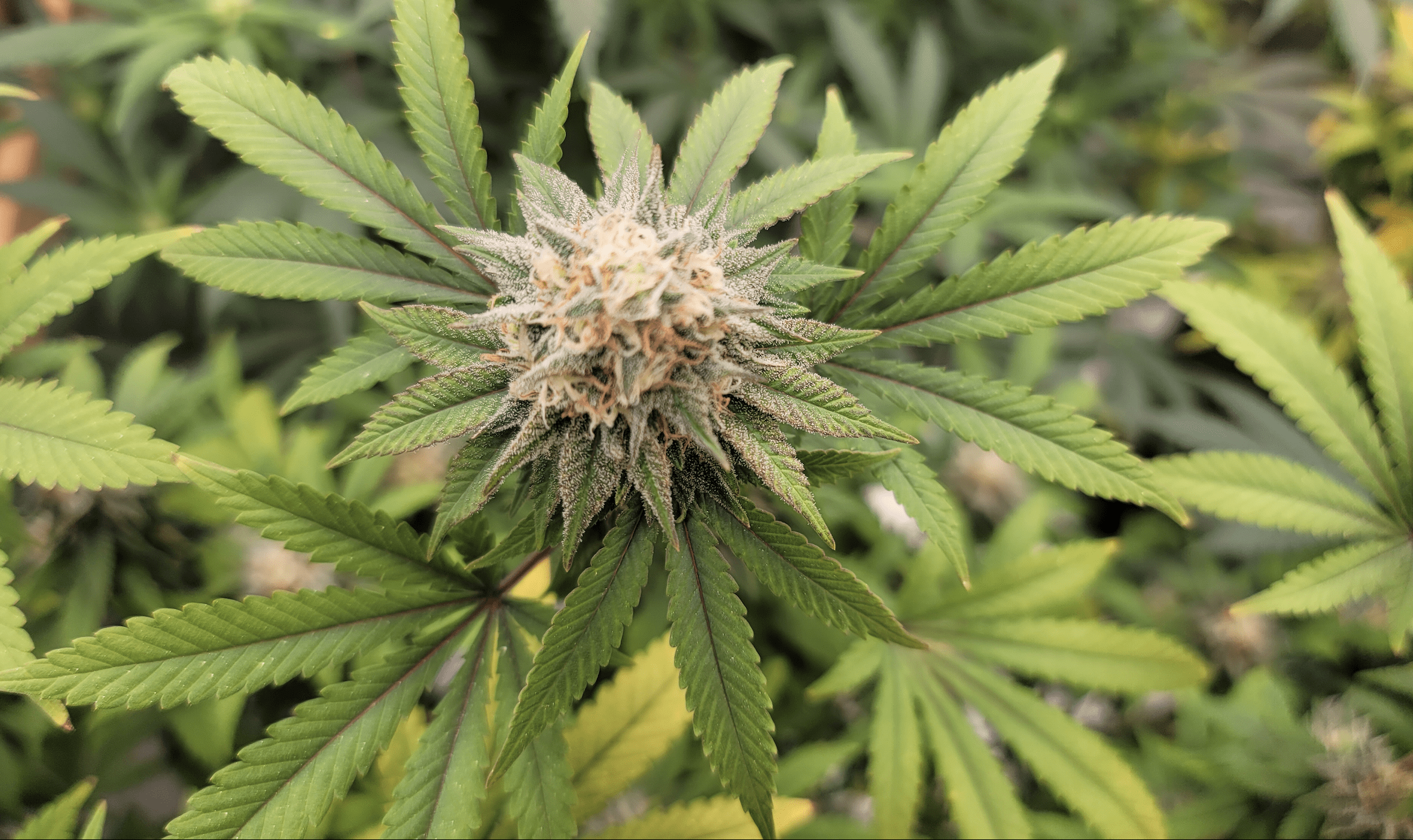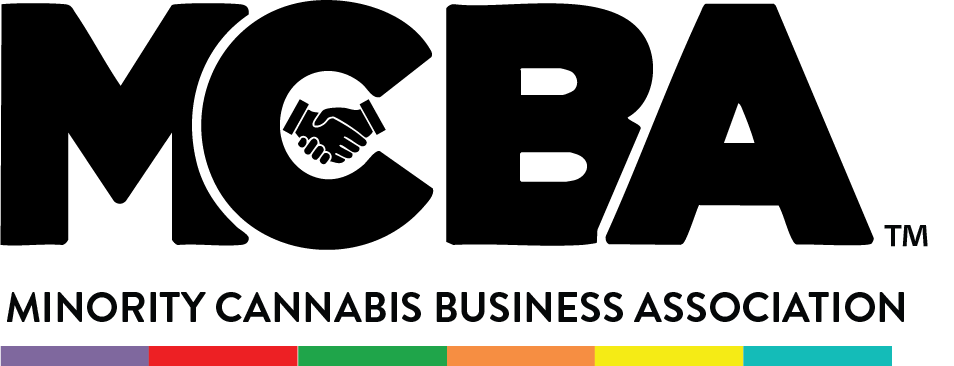
Published on October 13, 2024 By Marijuana Moment

“By standing up, getting involved and pushing for change, we can claim our rightful place in an industry that can offer economic empowerment, healing and growth for the Latino community.”
By Jason Ortiz and Jessica F. Gonzalez
Cannabis policy rarely makes it on the list of the issues highlighted during Hispanic Heritage Month, yet our people have been devastated by the war on drugs both here and abroad in our home countries. This Hispanic Heritage Month, we wanted to highlight the unique experience of the intersection of U.S. cannabis policy and Latino communities with five aspects of cannabis we want every Latino to know.
As we end the war on cannabis users, our community has a right and an interest in ensuring the damage done to us by the war on drugs is repaired, our prisoners are freed to reunite with their families and that the benefits of the legal cannabis industry make it back to us as investments in our community.
1. Latino Incarceration & Deportation
A disproportionate number of those currently incarcerated in federal prison are Latino, with many of the harshest sentences, including life in prison, given to our people.
One of many is Edwin Rubis. Edwin served 27 years of a 40-year sentence for his part in a cannabis distribution operation.
Ismael Lira was sentenced to life in prison for his role in a cannabis distribution operation.
Rafael Hernandez-Carrillo was sentenced to life for cannabis distribution.
Edwin, Ismael and Rafael are all wasting away in prison while 24 states stand up legal cannabis trafficking operations at a scale far beyond anything these men could have dreamed of.
There are ways that the incarceration of Latinos in federal prison can be reduced immediately. President Joe Biden has the power to commute the sentences of Edwin, Ismael and Rapheal, and reunite them with their families. As a community, we have the power to pressure him to do so by contacting his office directly through the Last Prisoners Project’s countdown to clemency campaign.
2. Lack of data re: Latino arrests for cannabis
According to the ACLU’s research report, A Tale of Two Countries, which analyzed marijuana possession arrests and related racial disparities from 2010 to 2018, one of its key findings was that “data collection failures prevent a comprehensive understanding of racial disparities in marijuana arrests.”
The FBI’s Uniform Crime Reporting data did not separate Latino individuals from other racial groups until 2013, making it impossible to distinguish Latino from non-Latino in Black and white populations. This lack of disaggregation hides potential disparities in Latino arrest rates and inflates white arrest numbers, underestimating the true gap between Black and white arrest rates.
As advocates who rely on data for policy reform, it’s incredibly frustrating and difficult to advocate for the Latino community when reliable data on cannabis arrests simply doesn’t exist. Without clear and accurate data, it’s impossible to fully understand the true impact of cannabis-related policing on the community, making it harder to highlight disparities or push for policy changes.
The lack of proper representation in arrest statistics also limits the ability to inform and educate the public and policymakers about the specific challenges the Latino community faces in the criminal justice system. Without this information, advocacy efforts remain incomplete and less effective. By demanding a Latino-specific data point in all data collection, we can better understand the true impact prohibition has had on our community.
Fortunately, as part of the FBI’s transition to the National Incident-Based Reporting System (NIBRS), more specific race-based data is being collected, including, for the first time ever, the ability for individuals to be identified as more than a racial or ethnic group (Hispanic/Latino and American Indian). This change must be applied across all criminal justice related reporting systems.
3. Getting involved is still risky for non-citizens despite state legalization
Additionally, Latino immigrants and non-citizens face significant challenges in accessing the cannabis industry, primarily because of its federal illegality, which creates serious legal risks for non-citizens.
Participation in the cannabis industry, whether as an employee or business owner, can jeopardize immigration status and lead to severe consequences, including denial of citizenship, green card revocation or even deportation. This legal uncertainty discourages many immigrants and non-citizens from pursuing opportunities in the cannabis sector, as any involvement could be interpreted as violating federal law, regardless of state regulations.
This issue could be addressed by removing cannabis industry employment from the “crimes of moral turpitude” within the immigration codes. Our community has the opportunity to improve the lives of all immigrants by encouraging our elected officials to make this small change that would have a huge impact.
4. Lack of Latino participation in the regulated cannabis industry
According to the MJBiz Daily Diversity Report, an average of 5.7 percent nationwide of total cannabis licenses are owned by Latino business owners.
Research conducted by Q&A Research Inc. and the National Hispanic Cannabis Council (NHCC) reveals that 40 percent of respondents use cannabis monthly, suggesting that approximately 2.5 million “acculturated” or “bicultural” Latino adults nationwide may be regular consumers. This demographic is estimated to spend around $2.5 billion annually on cannabis, according to the NHCC.
These statistics clearly do not imply a lack of interest in cannabis among Latino individuals, but rather point to significant barriers to entry that require attention.
It’s critical to make information about business opportunities, licensing requirements and industry regulations widely accessible through culturally relevant and language-specific resources. Bilingual educational programming can provide the necessary knowledge and skills to navigate the industry. Sadly, bilingual and culturally relevant programming is still rare to see.
5. Latinos deserve to be a part of the cannabis industry
As Latino advocates with over 20 years of experience in cannabis policy, it’s disheartening to still look around and see the lack of Latino representation in various cannabis spaces.
In our experience, discussions around social equity and justice often lack the crucial perspective of a Latino voice, leaving an important part of the conversation missing. As a community that has been disproportionately impacted by outdated cannabis laws (whether in the U.S. or your native country), the involvement of the Latino community in policy is essential for legalization to achieve the goal of supporting the communities most impacted by the war on cannabis.
By joining and supporting organizations like the Bay Area Latino Cannabis Alliance (BALCA) and the Minority Cannabis Business Association (MCBA), Latinos can assume leadership roles that provide a platform for representation and a direct link to policy change and business opportunities.
Conclusion
In case the Latino community needs to be reminded of its power, it makes up 20 percent of the United States’s population—the nation’s second largest racial or ethnic group.
Additionally, according to reports, as of 2023, Latino entrepreneurs have established five million businesses across the United States, generating over $800 billion in annual revenue.
According to the Pew Center, An estimated 36.2 million Hispanics are eligible to vote this year, up from 32.3 million in 2020. This makes Latinos the second-largest voting group in the country, with growing influence in key elections.Our community has been targeted, disrupted and exploited. By standing up, getting involved and pushing for change, we can claim our rightful place in an industry that can offer economic empowerment, healing and growth for the Latino community.
Jason Ortiz is the Director of strategic initiatives for the Last Prisoner Project, the former Executive Director of Students for Sensible Drug Policy, and a founder and previous President of the CT Puerto Rican Agenda.
Jessica F. Gonzalez, Esq. is an attorney at the Rudick Law Group, founder of Veridis Quo, a cannabis educational consulting firm and an executive board member of Supernova Women.
UNLOCK THE POWER OF MEMBERSHIP
- Rooted in Justice

- A Decade of Advocacy, Impact, and Equity; the Minority Cannabis Business Association Celebrates 10 Years

- Alt Pro Expo Miami 2025: The Ultimate B2B Event for the Vape and Alternative Products Industry

- They Want Our Rhythm But Not Our Blues: The Taxation Paradox Facing Cannabis Businesses

- MCBA 2025 Priorities





